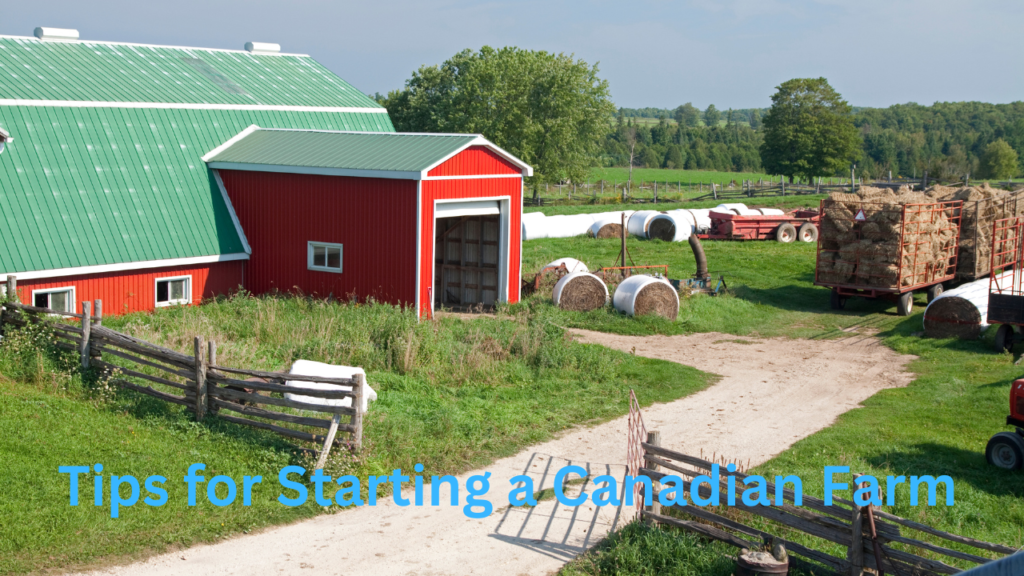Starting a farm in Canada presents a unique blend of challenges and opportunities for the modern agriculturist. The vast and varying landscape offers fertile ground for a diverse array of crops and livestock, demanding resilient structures against the elements. Adapting to the environment and integrating eco-friendly fuel sources ensures profitability and lasting farm operations. Keep reading to discover vital strategies and tools that will help lay the foundation for a successful Canadian farm.
Building Sustainable Farm Structures in Canada

Aspiring Canadian farmers face various challenges, yet the upsurge in sustainable practices offers a beacon of hope. One critical aspect is constructing edifices tailored to withstand the country’s extreme weather, managing resources efficiently, and ensuring long-term productivity.
The concept of agricultural building construction in Canada melds traditional farming needs with cutting-edge eco-friendly technologies. Savvy builders focus on incorporating energy-efficient materials and designs that maximize natural light and ventilation.
When laying the foundations of a farm, owners must scrutinize local zoning regulations, climate conditions, and their intended agricultural activities. Deciding to implement sustainable solutions from the start can set a farm on a path to environmental stewardship and economic viability.
Finding the right building construction service for your agricultural needs is easier. A simple Google search, such as agricultural building construction Alberta or your specific location, can quickly connect you with top-notch options.
Fuel Sourcing Strategies for Canadian Farms

The success of a Canadian farm heavily relies on maintaining a consistent flow of resources, with a reliable fuel supply topping the list of essentials. Given the reliance on diesel-powered machinery for efficient operations, establishing a dependable relationship with a trusted fuel supplier is paramount. A quick search such as a diesel fuel supplier in Saskatchewan will suffice to locate your area’s ideal diesel fuel supplier.
Scalability is another critical aspect when planning for fuel needs. As farms expand, fuel demands increase exponentially, necessitating a supplier that can grow alongside the business. Farmers must evaluate their fuel usage across seasonal cycles, aligning procurement strategies with peak periods of activity to ensure they are never caught short.
Cost-effective fuel management also involves assessing storage solutions on-site for ready availability. Implementing a robust storage system tailored to capacity requirements can safeguard against price fluctuations and supply shortages. Engaging with energy experts can guide farmers in selecting storage options that suit their operations and optimizing space and expenditure.
Optimizing Land Use: Crop Rotation and Soil Health
Canadian farmers prioritize their land’s fertility, knowing that well-cultivated soil is the bedrock of a thriving farm. Crop rotation is a practice embraced to maintain soil health, halt the spread of disease, and disrupt pest cycles. Strategic planning of sequential planting ensures the soil retains its nutrients, supporting diverse, high-yield harvests year after year.
Understanding soil composition and its dynamic nature is fundamental for Canadian agricultural entrepreneurs. Regular soil testing enables farmers to adapt their cultivation methods and input applications to suit the specific needs of their land. This attentiveness promotes robust plant growth and constitutes a proactive approach to maintaining soil vigour over time.
Integrating cover crops into the farming calendar is another powerful technique adopted by Canadian growers. These crops prevent erosion, improve soil structure, and enhance water permeability. By invigorating the soil with natural methods, farmers lay the groundwork for sustainable agricultural success, firmly planting the seeds of a bountiful future.
Tech Tools for Modern Canadian Farming
Canadian farm operators increasingly leverage advanced technology to enhance productivity and streamline operations. Precision farming methods, such as GPS-guided tractors and drones for monitoring crop health, are transforming farm management, with an eye on optimizing yield and resource allocation. These tech tools enable farmers to refine their practices and make informed decisions based on accurate, real-time data.
Effective farm management software has become indispensable for tracking the multitude of tasks and data points modern agriculture demands. This software offers a centralized platform for managing a farm’s complex ecosystem, from inventory management to financial forecasting. Farm owners can ensure greater oversight and control with this integration, driving efficiencies that were once beyond reach.
Connectivity plays a transformative role on today’s farms, with Internet of Things (IoT) devices automating many routine processes. Sensors deployed across fields measure soil moisture and temperature, subsequently adjusting irrigation systems for optimal water usage. These innovations promote sustainable practices while saving time and resources, allowing farmers to meet the challenges of a rapidly evolving agricultural landscape.
Overall, starting a Canadian farm demands a blend of resilience and innovation to navigate the diverse challenges and opportunities the country’s landscape presents. By embracing sustainable building practices, optimizing fuel sourcing, and leveraging technological advancements, farmers can lay the groundwork for enduring success in Canada’s dynamic agricultural sector.














